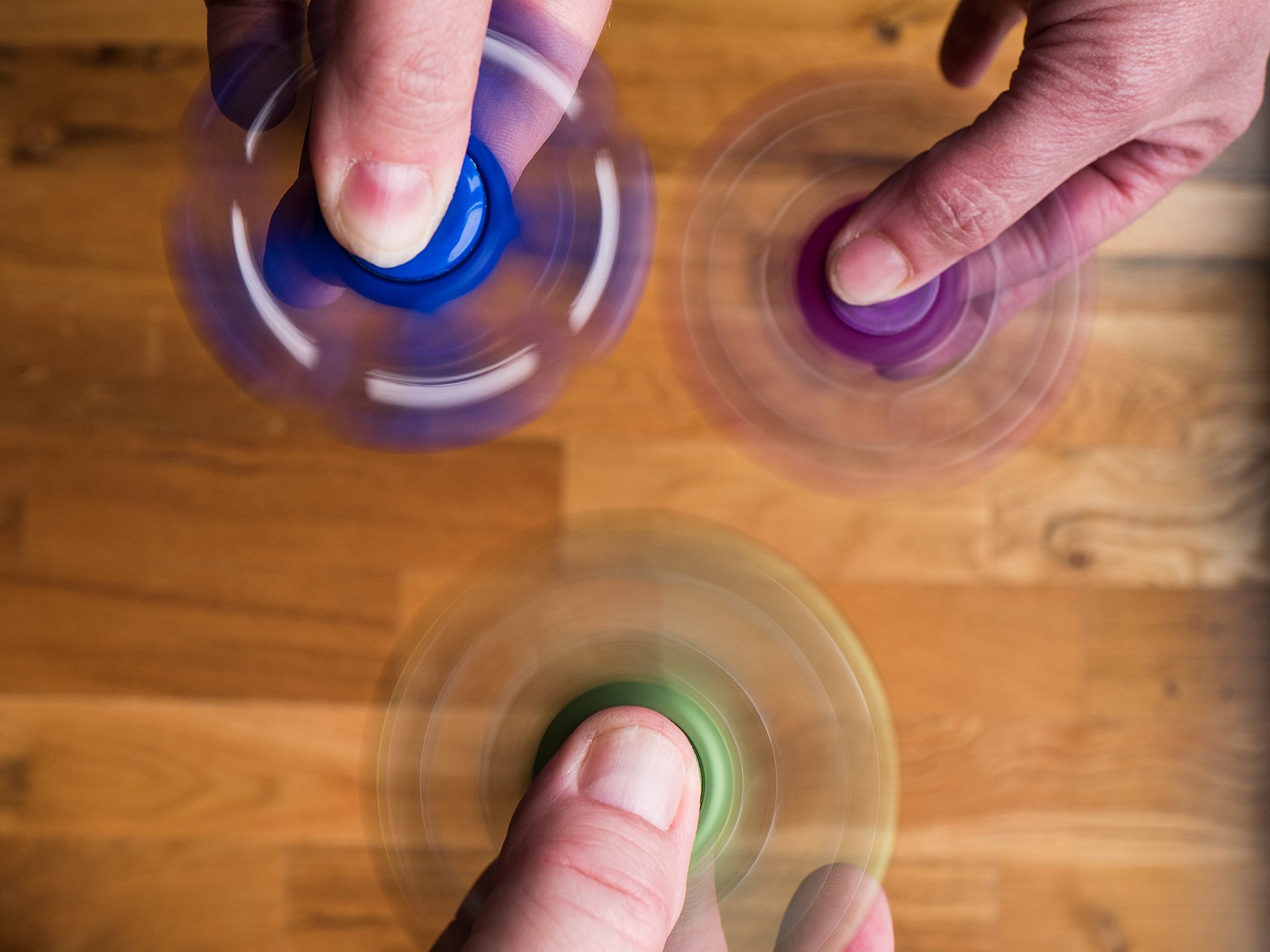Fidget spinners were invented to bring peace to Middle East but haven’t made their creator a penny
Creator of popular playground toy Catherine Hettinger first came up with concept as a way to stop Palestinian kids throwing rocks at police - but her patent expired in 2005

Your support helps us to tell the story
From reproductive rights to climate change to Big Tech, The Independent is on the ground when the story is developing. Whether it's investigating the financials of Elon Musk's pro-Trump PAC or producing our latest documentary, 'The A Word', which shines a light on the American women fighting for reproductive rights, we know how important it is to parse out the facts from the messaging.
At such a critical moment in US history, we need reporters on the ground. Your donation allows us to keep sending journalists to speak to both sides of the story.
The Independent is trusted by Americans across the entire political spectrum. And unlike many other quality news outlets, we choose not to lock Americans out of our reporting and analysis with paywalls. We believe quality journalism should be available to everyone, paid for by those who can afford it.
Your support makes all the difference.It seems like every child in Britain has got hold of a fidget spinner this summer - but it turns out there’s much more to the distracting fad than exasperating parents and teachers.
Fidget spinners - which are two or three pronged devices with a ball bearing in a circular pad in the centre, which the user balances with their index finger and thumb before flicking with their free hand - were invented by American Catherine Hettinger, who filed a patent on the design in 1993.
Ms Hettinger said she first got the idea for the inexpensive gadget after a trip to visit her sister in Israel, where she heard about how young Palestinian children often throw rocks at police officers. She thought the spinning design could distract frustrated children and provide a non-violent outlet for pent-up energy.
“It started as a way of promoting peace, and then I went on to find something that was very calming,” she told Money in a recent interview.
There are dozens of tricks fidget spinners can master, including transferring it from finger to finger or hand to hand, throwing and catching it, or using more than one at a time to create a spinner 'tower'.
The angular momentum created by the spinning makes the toy feel like it's fighting back against the movements of the user, which is partly why they're so addictive to play with.
Today the toy is marketed as a stress reliever for children and adults who have problems with focus or fidgeting such as those who suffer from ADHD, autism and anxiety, although its efficacy has been debated.
Despite the fact fidget spinners have been available for two decades, the product exploded in popularity in 2017.
Ms Hettinger attempted to sell the design to several large toy companies over the years. Her patent expired in 2005, meaning that other companies are now free to sell their own versions of the invention.
Light up designs, Bluetooth enabled devices and spinners with several extra blades and cogs - ranging from £3 - £100 in price - have been selling out at shops and online retailers around the world. 49 of the top 50 bestselling toys on Amazon.com are currently fidget spinners or cubes.
The Orlando, Florida native told Money she isn’t upset about missing out on the income the fad could have brought her. “Maybe if it was some kind of exploitative product - like a new style of cigarettes - and my only motivation was to make money, I’d have a different attitude,” she said. “But I am just thrilled.”
Ms Hettinger began a Kickstarter campaign which aimed to raise $24,000 (£19,000) to relaunch her classic fidget spinner design earlier this month, but wasn’t successful.
She’s already working on her next project, however - a diet and fitness app for smartphones.
Join our commenting forum
Join thought-provoking conversations, follow other Independent readers and see their replies
Comments